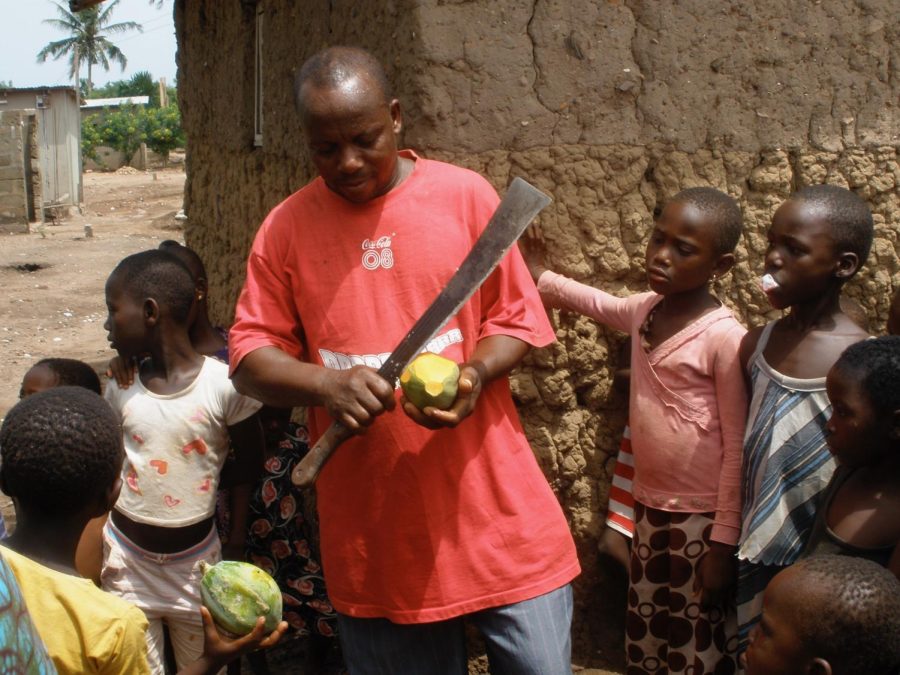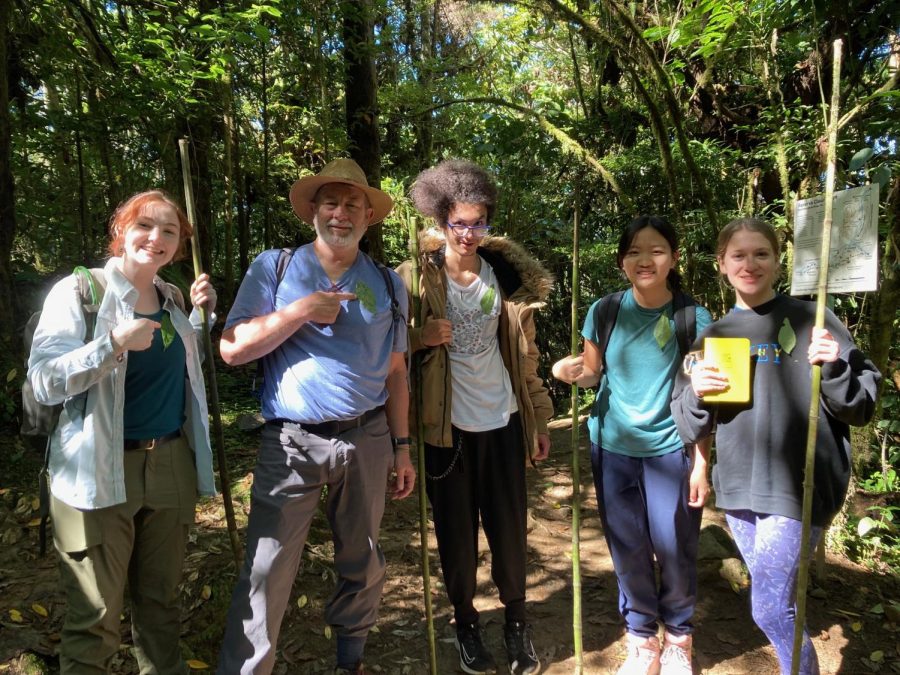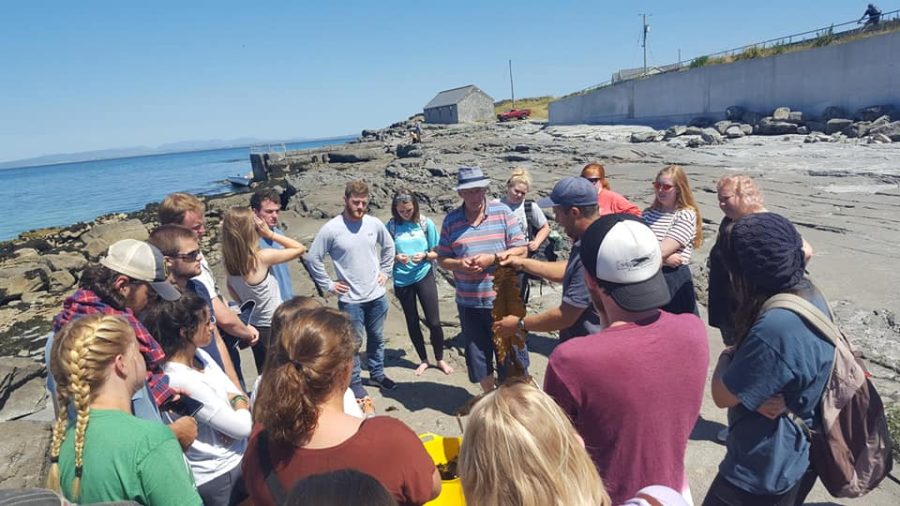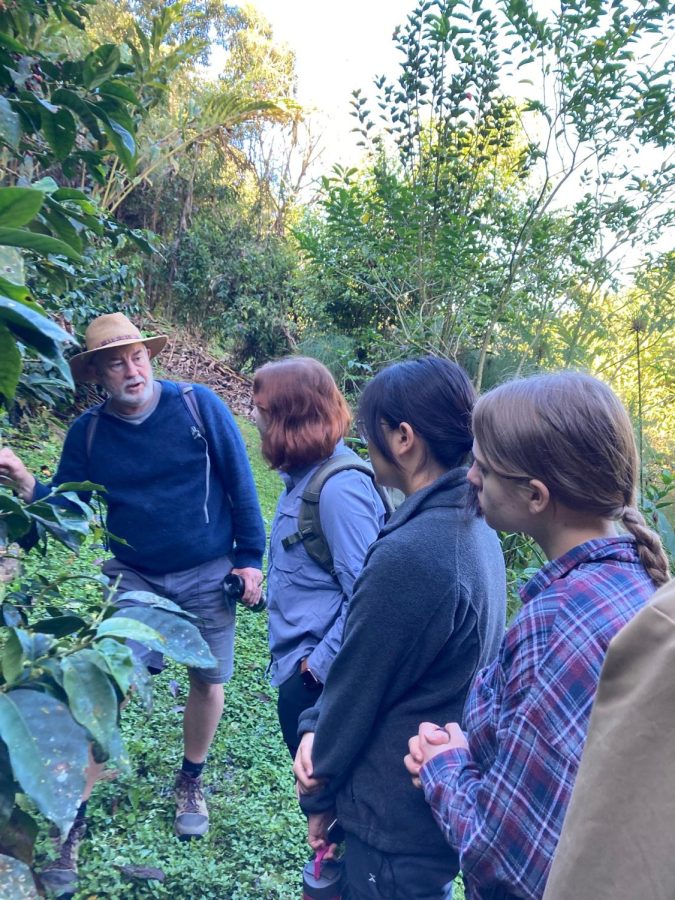‘It changes those students’: WKU faculty take students abroad
Photo from a faculty-led trip to Costa Rica in July 2022.
February 24, 2023
Among the many educational opportunities offered at Western Kentucky University, students are given the chance to travel the globe while also working towards their academic goals and forge long-lasting friendships.
Saundra Ardrey, associate professor in the political science department, Martin Stone, associate professor of horticulture and director of the Baker Arboretum, and Amy Nemon, instructor, director of Geospatial Technologies Lab and GIS certificate program coordinator, along with other faculty members, are taking students around the world to Senegal, Costa Rica and Ireland.
Ardrey, along with John Sunnygard, associate provost for global learning and international affairs, are taking approximately 15 students to Senegal in West Africa where they will engage in a service project and obtain six hours of credit, Ardrey said.
“All faculty-led [study abroad] are usually to countries that most of our students don’t travel to,” Ardrey said. “So students get a full view of what’s going on in the world.”
Currently, the application is still open and will close sometime next week. The cost will be around $6000, but she said there are scholarships available at “every turn” from passport, application and Student Government Association scholarships.
“We have all kinds of resources,” Ardrey said. “Don’t let money be the reason you don’t go.”
Ardrey also said they are working with the Intercultural Student Engagement Center to get scholarships and resources for certain students.
“If you’re a first or second year student and you have a certain GPA then we will give you $3000,” Ardrey said. “We’re working with other students to raise the money.”
During the trip, Ardrey said they will work with students to “get what they need” in terms of class credits.

Ardrey said that while this trip is academic it also serves as a “self affirming” experience for both Black and white students that will form long-lasting and strong friendships.
“This is an opportunity to go with faculty that you know to a country that is self affirming,” Ardrey said. “Most of the students will be […] African American students, and we’re going to a country that’s predominately Black also. It’s an opportunity to not be the minority. For my white students, it’s also a revelation [because] they begin to understand what it means and how it feels to navigate where you are the minority.”
Of the six credit hours students will receive in this program, three hours will be devoted to a “service learning project.”
“The whole idea of the trip is we are not tourists,” Ardrey said. “We are not the great big Americans coming over to tell them what to do and how to do it […] we go into a village and say ‘what kinds of opportunities can we have to work together? What do you need?’”
In addition to the 15 WKU students, Ardrey said they will be partnering with another university in Senegal that will introduce students to experiences outside what they are used to.
“They will have 15 students and we’re going to have 15 students,” Ardrey said. “They’re going to be in the same classes, we’re going to have African culture, African American culture. We’re going to be learning from each other. They will do what college students do.”

Stone is taking his students to Costa Rica, a place he has been going to for roughly a decade, to teach students about “coffee, chocolate, and sustainability.”
The trip began as a winter class strictly for Gatton Academy students, but after a few years he created a three-week May trip for his other students as well.
“My horticulture students were inquiring about why there wasn’t a class that they could join,” Stone said. “It took me a few years but eventually [we] put this together.”
The first event of the trip, Stone said, is taking students to a coffee farm on the slopes of the Poás volcano. This place is usually off limits to the public but given his horticultural background and the background of the guide, they will be allowed in the fields.
“We’re going to actually go into the fields,” Stone said. “Then we will go through the processing on the site there. Then we’ll get to taste probably the best coffee you’ve ever tasted in your life.”
Stone said besides seeing the growing and processing of the coffee beans, they will also explore the “cultural aspects of coffee” like the families who are “everywhere” in Costa Rica because of their coffee.
After that they will travel to Catie, a tropical agricultural research and higher education center, to see and discuss the vast array of genetic materials they collect of coffee and chocolate from around the world, Stone said.
“Catie is a big research place where they have accessions, the genetics for coffee all around the world [and] chocolate,” Stone said. “They have acres and acres of chocolate accession from Africa […] from Asia […] and they study the different fat contents and different flavors they have from growing in different regions. We’ll be getting a tour through the genetics of all these.”
After that, Stone said, the group will enjoy trying the chocolates, which they will eat from boxes made from the “papery” material around the chocolate fruit. That is one aspect of sustainability he hopes that Costa Rica, a notably “sustainable-focused country” and a “leader in the hemisphere,” will impress upon the students.
Continuing with sustainability, the class will meet with a local farmer who has created a self sustaining farm. The farmer raises cows that produce milk and manure and then uses the milk to make cheese and the manure to power the cheese making machines. He also grows vegetables once the manure is “spent” and worms have eaten their way through it.
“We will see examples of sustainability and intentionality and thoughtful people while we’re down there,” Stone said.
The entire trip costs somewhere between $5500 and $5900, which he said is really “not bad” given the cost of airfare, meals and lodgings. The application for this coming trip is closed, Stone said, with 13 students signing up to go.
Stone also mentioned they will go to a botanical garden at the University of Costa Rica to see, among other things, the vast expanses of poppies.

Finally, the third faculty member taking students abroad is Amy Nemon, who, along with Jill Brown, an assistant professor of earth, environmental, and atmospheric sciences, will take students abroad to Ireland.
The program begins May 30 and is a three week trip. According to Nemon, this is the seventh rotation of this program, the last being in 2019 before the COVID-19 pandemic. The trip is entitled “Mystic landscapes of the Emerald Island.”
As of right now, Nemon said they have had 14 applicants, but had many more who have not finished the process but expressed interest in going. The three week trip costs roughly $5500 plus airfare. Nemon said the expenses have gone up but that it was still a good deal given that the cost pays for meals, lodging and credit hours.
While she said they have “gotten lucky” some years regarding prices, she suspected the costs have risen due to airfare returning to pre-pandemic prices and other world events.
“Our cost is a little bit up from the past and I think that’s because there are a lot of immigrants, particularly from Ukraine, that have moved into Europe,” Nemon said. “Many of the youth hostels where we would have stayed now are housing immigrants so we’ve had to move to hotels, which are nicer but it did bring our cost up a little.”
Their trip will begin in Dublin and travel clockwise through the country and through Northern Ireland, exploring cultural, geographical and environmental themes before ending again in Dublin.
“Geography is very holistic, we overlap with a lot of different disciplines so we definitely try to pull in all of those different elements,” Nemon said.
This trip will also include “really cool experiences” like learning about how geography has affected farming practices, the economy, geopolitics and even beer making. This trip will also include learning and interviewing the local population, Nemon said.
“When you start to meet people and talk to people you start to discover ‘okay, you don’t need to do the touristy sort of things,’” Nemon said. “You get off the beaten track and really start to learn about the people.”
Much like Ardrey’s program, Nemon said they will work with students’ majors, minors or general interests and develop a project for them to work on. For example, she recalls a dental hygienist student who did her project on the dental care of Ireland.
“All of our courses for these classes are all colonnades and one of them is a 400 level local to global colonnade course,” Nemon said. “One of the projects will take their major and formulate a project for them to work on.”
All three faculty members said the purpose of the trip was ultimately bigger than purely academic. While these study abroad trips do increase retention and graduation rates, each of them said the trips increase confidence, independence and tolerance, all the immeasurable benefits that make well-rounded people.
“It changes those students,” Stone said. “Mark Twain has a quote about travel, and I believe this, [he said] ‘travel is fatal to prejudice, bigotry, and narrow-mindedness.’ We could all use more of that, so that’s why we go.”
Administration reporter Michael Crimmins can be reached at [email protected].















